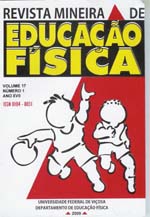BENEFIT OF PHYSICAL ACTIVITY TO INCREASE STRENGTH IN PATIENTS WITH MULTIPLE SCLEROSIS: A SYSTEMATIC REVIEW WITH META-ANALYSIS
Keywords:
Resistance training, strength manifestations and multiple sclerosisAbstract
methodologies is needed to help clarify the role of this intervention. Objective: The aim of this study was to conduct a systematic review, followed by meta-analysis, on the hypothetical effects of exercise in different manifestations of strength in patients with MS. Methodology: The methodological quality of the data was assessed through the application of the PEDro (Physiotherapy Evidence Database) scale, and the meta-analysis, carried out using the computer software Comprehensive Meta-Analysis V2. The exercise and control groups were compared at the initial stage and after 12 weeks, with regard to different types of strength (maximum voluntary contraction, isometric and isokinetic forces). Result: The electronic search identified 152 articles, of which 22 that responded to the criteria used for the review were used. To evaluate the methodological quality, PEDro scale was used. Conclusion: It was concluded that, after the patients carried out exercise programs, increase in strength occurred, this improvement being more significant when assessed in isometric dynamometry.
Downloads
References
BROEKMANS, T. et al. Effects of long-term resistance training and simultaneous electro-stimulation on muscle strength and functional mobility in multiple sclerosis. Mult. Scler., v. 17, n. 4, p. 468-77, 2011.
COMPSTON, A.; COLES, A. Multiple sclerosis. Lancet, v. 372, n. 9648, p. 1502-17, 2008.
DALGAS, U.; STENAGER, E.; INGEMANN-HANSEN, T. Multiple sclerosis and physical exercise: recommendations for the application of resistance-, endurance- and combined training. Mult Scler, v. 14, n. 1, p. 35-53, 2008.
DALGAS, U. et al. Fatigue, mood and quality of life improve in MS patients after progressive resistance training. Mult. Scler., v. 16, n. 4, p. 480-90, 2010.
DALGAS, U. et al. Muscle fiber size increases following resistance training in multiple sclerosis. Mult. Scler., v. 16, n. 11, p. 1367-76, 2010.
DALGAS, U. et al. Neural drive increases following resistance training in patients with multiple sclerosis. J. Neurol., v. 260, n. 7, p. 1822-32, 2013.
DODD, K. J. et al. Progressive resistance training did not improve walking but can improve muscle performance, quality of life and fatigue in adults with multiple sclerosis: a randomized controlled trial. Mult. Scler., v. 17, n. 11, p. 1362-74, 2011.
FIMLAND, M. S. et al. Enhanced neural drive after maximal strength training in multiple sclerosis patients. Eur. J. Appl. Physiol., v. 110, n. 2, p. 435-43, 2010.
FOLLAND, J. P.; WILLIAMS, A. G. The adaptations to strength training: morphological and neurological contributions to increased strength. Sports Med., v. 37, n. 2, p. 145-68, 2007.
GIOVANNONI, G. Multiple sclerosis related fatigue. J. Neurol. Neurosurg. Psychiatry, v. 77, n. 1, p. 2-3, 2006.
KJOLHEDE, T.; VISSING, K.; DALGAS, U. Multiple sclerosis and progressive resistance training: a systematic review. Mult. Scler., v. 18, n. 9, p. 1215-28, 2012.
LERDAL, A. et al. A prospective study of patterns of fatigue in multiple sclerosis. Eur. J. Neurol., v. 14, n. 12, p. 1338-43, 2007.
LUBLIN, F. D. Clinical features and diagnosis of multiple sclerosis. Neurol. Clin., v. 23, n. 1, p. 1-15, 2005.
MOTL, R. W.; GOSNEY, J. L. Effect of exercise training on quality of life in multiple sclerosis: a meta-analysis. Mult. Scler., v. 14, n. 1, p. 129-35, 2008.
MOTL, R. W.; MCAULEY, E.; SNOOK, E. M. Physical activity and multiple sclerosis: a meta-analysis. Mult. Scler., v. 11, n. 4, p. 459-63, 2005.
NOSEWORTHY, J. H. et al. Multiple sclerosis. N. Engl. J. Med., v. 343, n. 13, p. 938-52, 2000.
PELFREY, C. M. et al. Sex differences in cytokine responses to myelin peptides in multiple sclerosis. J. Neuroimmunol., v. 130, n. 1-2, p. 211-23, 2002.
RAMAGOPALAN, S. V. et al. Multiple sclerosis: risk factors, prodromes, and potential causal pathways. Lancet Neurol., v. 9, n. 7, p. 727-39, 2010.
RUBIN, S. M. Management of multiple sclerosis: an overview. Dis. Mon., v. 59, n. 7, p. 253-60, 2013.
WHITE, L. J. et al. Resistance training improves strength and functional capacity in persons with multiple sclerosis. Multiple Sclerosis, v. 10, n. 6, p. 668-674, 2004.
Downloads
Published
How to Cite
Issue
Section
License
Os artigos submetidos e publicados são de inteira responsabilidade de seus autores, não refletindo necessariamente a opinião do Comitê Editorial. A revista se reserva o direito de efetuar, nos originais, alterações de ordem normativa, ortográfica e gramatical, com vistas a manter o padrão culto da língua, respeitando, porém, o estilo dos autores. O manuscrito submetido deve ser original, não podendo ter sido publicado em qualquer outro veículo de informação científica, e nem submetido para publicação em outra revista científica. Os trabalhos publicados passam a ser propriedade da revista Mineira de Educação Física, ficando sua reimpressão total ou parcial de acordo com a licença Creative Commons Attibution 4.0. Deve ser consignada a fonte de publicação original. Os originais não serão devolvidos aos autores. As opiniões emitidas pelos autores dos artigos são de sua exclusiva responsabilidade.





 Esta obra está licenciada com uma Licença
Esta obra está licenciada com uma Licença 